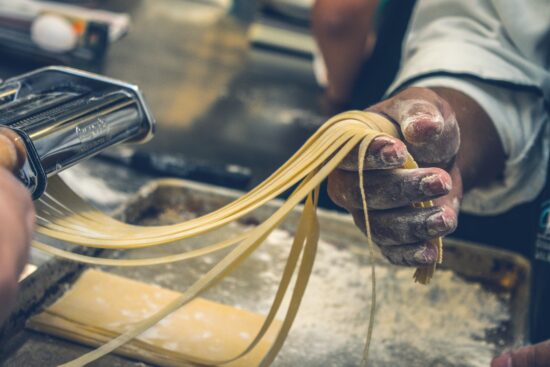5 Major Reasons for Food Handler Certification

When you run a food business, whether a bustling restaurant, a food truck, or a catering company, there are some obvious expenses – ingredients, equipment, rent… But one less obvious investment brings huge unseen benefits: food handlers cards for your employees.
Sure, having food handler certification may be a legal requirement. But its true value goes far beyond simple compliance. Let’s dig into how a seemingly minor investment in food safety awareness can have major impact your bottom line.
#1 Boosting Customer Confidence
In today’s world, diners are savvier than ever. They understand potential food safety risks and are far more likely to choose establishments that take it seriously. Seeing your employees handle food with care and knowledge gleaned from their food handler card training instantly fosters a sense of trust. This means repeat customers, positive word-of-mouth, and a competitive edge.
#2 Minimizing Contamination Risks
Foodborne illnesses are a nightmare for any food business. Costs include lost revenue, wasted stock, and potentially devastating reputation damage. Food handler education emphasizes preventing cross-contamination, proper temperature control, and hygiene practices – massively reducing the potential for costly outbreaks.
#3 Protection from Lawsuits
Unfortunately, lawsuits related to foodborne illness are a reality. If an incident occurs, having demonstrable proof that all employees underwent food safety certification shows due diligence on your part. This can be a vital layer of protection in litigation cases, limiting your financial responsibility and preserving your business.
#4 It’s All About Prevention
The true financial return of food handlers’ cards lies in prevention. Avoided medical costs for sick customers, the prevented downtime, and the mitigated legal damage. While hard to quantify in dollars, it’s easy to see that this proactive investment of food handler certification pays for itself many times over.
#5 The Food Handler’s Toolkit
A food handler’s card is the first step in understanding and implementing excellent food safety practices. But to truly protect yourself and those you serve, it’s essential to elevate your food handling habits. Here’s a closer look at those bonus tips:
Handwashing
It’s not just about doing it; it’s about doing it right. Wash your hands with soap and warm water for at least 20 seconds. Scrub thoroughly, including the backs of hands, between fingers, and under nails. Key handwashing moments include:
- Before starting any food preparation
- After handling raw meat, poultry, or seafood
- After using the restroom
- After coughing, sneezing, or blowing your nose
- Anytime you touch your hair, face, or an unclean surface
Food Thermometer is Your Secret Weapon
Bacteria thrive in the ‘Danger Zone‘: Between 40°F (4°C) and 140°F (60°C). Use a food thermometer to ensure:
- Hot foods are held at 140°F (60°C) or above
- Refrigerated foods stay at 40°F (4°C) or below
- Meat and poultry are cooked to safe internal temperatures. Check a temperature chart for guidelines!
When in Doubt, Toss It
Smell, texture, and appearance change when food spoils. Trust your senses. Dispose of anything that has a strange odor, feels slimy, is moldy, or has been sitting out too long.
“Use-by” dates are vital but not foolproof. Remember, food can turn before its date under improper conditions. Don’t risk it if you’re uncertain.
Cross-Contamination
Raw meat carries bacteria that should never touch ready-to-eat foods. To stop cross contamination from happening:
- Use separate cutting boards — one dedicated to raw meats, another for everything else.
- Thoroughly wash all knives, utensils, and surfaces after contact with raw foods, using hot soapy water or the dishwasher.
- Store raw meat on the bottom shelf of your refrigerator so drips can’t land on other items.
Making smart choices in the kitchen not only keeps food delicious but also protects the health of yourself, your family, or your customers. Stay vigilant and you’ll be a food safety superstar!
Make Safety Certification Simple with Certified On The Fly
Getting your employees certified doesn’t have to be a headache. Certified On The Fly offers flexible online food handlers card and food safety certification courses tailored to your needs.
Employees train at their own pace, while our employer alerts give you a clear overview of who’s certified and when renewals are needed. Invest in your culture of food safety with Certified On The Fly!
Ready to give your food business the protection it deserves? Enroll today!
⭐⭐⭐⭐⭐
“Short, sweet and to the point. Love using this platform”
— Ross Stewart
Back to Blog